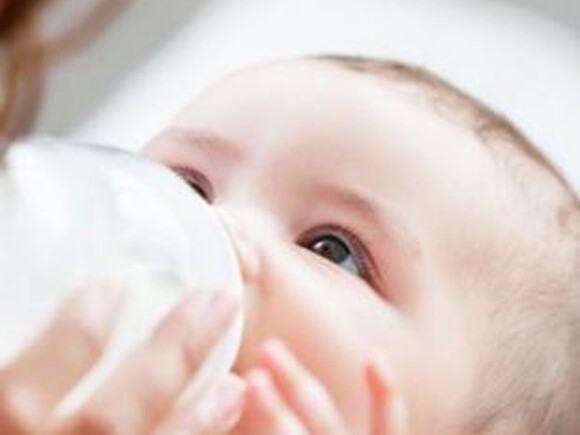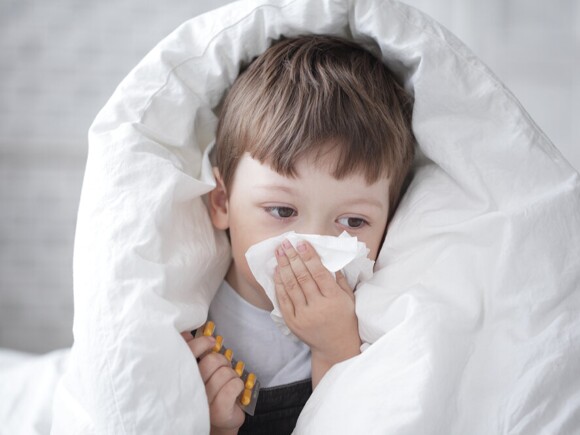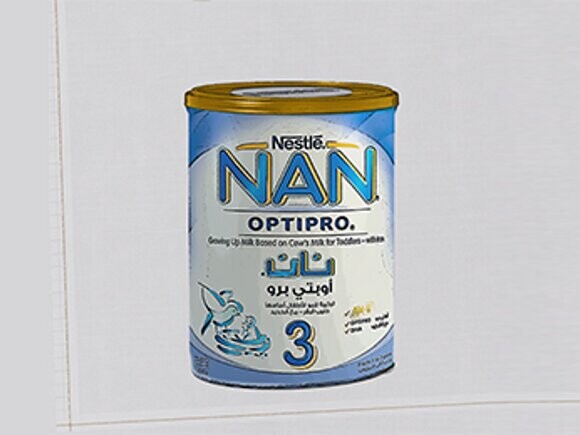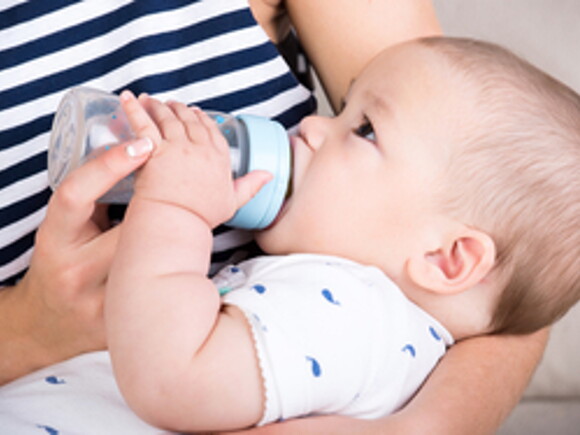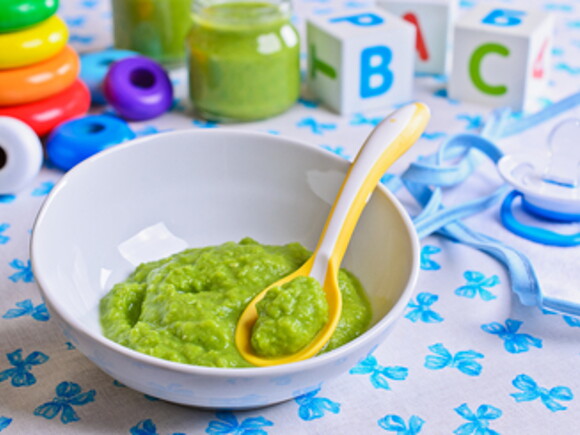An allergy to cow's milk yes, but which one?
Cow's milk may be the cause either of an allergy to the proteins found in cow's milk (which provoke a defensive reaction by the immune system) or an intolerance to the sugar in the milk, called a lactose intolerance (resulting from an insufficient secretion of lactase, the enzyme which breaks down lactose, in the intestine).
The number of cases of allergies to cow's milk proteins has doubled in the past ten years (there are many causes and the list is still vague according to specialists). It represents 13 % of food allergies in children and affects around 3 % of babies under the age of 2. It disappears towards the age of one or two years old in over 80 % of cases if cow's milk has been completely eliminated from the child's diet. It persists indefinitely in 20 % of children affected. If your baby turns out to be allergic, the information below will prove useful.
Not an easy diagnosis
How can you recognise this type of allergy? It is not easy as the signs vary and may be confused with other conditions.
The three main types of symptoms indicating an allergy to cow's milk proteins are:
Cutaneous: hives, eczema, redness or paleness in the face, oedema (swelling).
Digestive: regurgitation, vomiting, constipation, chronic diarrhoea (in newborn babies), stomach pain (in young children).
Respiratory (20 to 30 % of cases): wheezy cough, asthma, difficulty breathing.
Much rarer, fortunately, an anaphylactic reaction (major disruption to blood circulation combined with a sudden drop in blood pressure) requiring urgent hospitalisation.
Signs of a lactose intolerance include acute and irritable diarrhoea, bloating, stomach cramps, flatulence and vomiting.
In order to confirm the suspicions of your healthcare professional, your child will have to undergo full allergy testing with a specialist. They will carry out skin tests (immediate reactions), and/or possibly use a patch test or provocation test to show up manifestations of the allergy during digestion and cross compare the data obtained from the blood test.
There is a history of allergies in my family. Is this a factor?
A parent or sibling may be allergic to cow's milk without the new baby inheriting the same allergy. That said, a higher level of food allergies have been observed in families with a history of other types of allergy.
What foods can I give my allergic child?
The diagnosis has been confirmed: your child has an allergy or intolerance to cow's milk. As the cure requires the complete elimination of this ingredient in all its forms from their diet, you are wondering how on Earth you are going to feed them and introduce them to solids. You will, of course, follow the advice of your healthcare professional, but here are some ideas to consider:
First of all, infant formula will be replaced by a hydrolysed-protein formula, the typical substitute for cow's milk designed for newborn babies (not to be confused with a hypoallergenic formula). This special milk is no less rich that your baby's previous milk and will contribute just as effectively to their growth! If you are breastfeeding, it is up to you to eliminate all dairy products from your diet, as some cow's milk proteins pass into your breast milk.
Secondly, you will have to learn to decipher all labels to detect the slightest trace of cow's milk proteins in everyday foods. The best-known terms include: powdered milk, casein, caseinate, lactoglobulin, lactalbumin, whey, etc. (non exhaustive list). Train your eye!
What about soya milk? The French food health and safety agency (Afssa) advises against the use of soya for children under the age of three.
Although an allergy to cow's milk will complicate the manner in which you feed your baby, your allergist and regular healthcare professional will be able to advise and help you throughout their nutritional development.
Opinion
The antibodies contained in breast milk constitute the best form of prevention against food allergies. For optimum preventive effect , you should ideally breastfeed for at least four months.
Get full access to expert-backed nutrition support
My feed
Curated content based on your preferences
Feeding guidance
Learn about various feeding options and what each means for you and your baby
Tailored Practical Tools
Try our tailored practical tools to guide you through the parenting journey.
My First 1000 Days club
Customised notifications, reminders and newsletters
Still haven't found what you are looking for?
Try our new smart question engine. We'll always have something for you.


